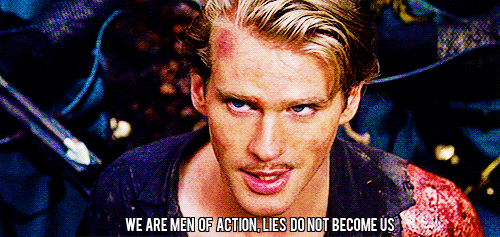My Africa reading project is so fun and great that it’s confusing to me it took me three-quarters of the year to reconvene it in 2016. There is nothing not good about it, except I guess the shortage of histories of African countries written by African authors in English and available at my library. But guess what, y’all. That is exactly what I got for Ethiopia, and I couldn’t be more pumped about it. Bahru Zewde’s A History of Ethiopia, 1855-1974 gloriously fulfills all my conditions. It is also real short, which meant that I read each section with extra-heightened attention to detail cause it is hard to remember a ton of dude’s names when you know they’re only going to be around for like three more pages.
Anyway. The funnest and greatest thing about my Africa reading project is the moment when new facts learned in my African history books connect up to existing knowledge that I already have. For example, this: In the mid-1800s, Egypt began encroaching upon Ethiopian land,1 and Ethiopia appealed to the nations of Europe like “You’re Christian, we’re Christian, let’s be Christian together and not let the Muslims take over our Christian land.” This didn’t work because, spoilers for all of human history, everyone actually cared way more about money than they cared about religion.

(Egypt had the Suez Canal.)
BUT. Here’s the part where it joins up to my knowledge of history: Then there came the Mahdist Uprising, which was this whole sort of charismatic revivalist Muslim situation wherein the Sudanese rebelled against their Egyptian rulers. You know the one. Where General Gordon was the general and he called for help and no help came? And he was brutally slaughtered by the Mahdists along with all the other people besieged with him at Khartoum?
So anyway, at this point the British really needed Ethiopian support, because Ethiopia borders Sudan, and they came hat in hand to the emperor, Yohannes IV, and made a treaty with him that Ethiopia abided by and Britain did not. Hashtag colonialism.

Another place where the book nearly, but not quite, joined up with my knowledge of history was in its dealing with Eritrea. Bahru Zewde seems quite down on Eritrean independence (unless I misunderstood? also possible?), and I don’t know if that’s because Eritrean independence was a bad idea, or because at the time this book was written, Eritrea was not yet independent, and we tend to think that the existing boundaries of a country are the Correct ones. Which I am realizing right now is kind of weird. Like, we don’t want a country to split in half, but if a country has split in half in the past, we’re all like, Yeah! Eritrean independence!
I do recall, however, a protest that occurred when I was a teenager where a bunch of Eritreans wanted the US to help stop the Ethiopians from doing a thing they were currently doing that the Eritreans wished them to desist from. I had a classmate whose parents were Eritrean (that is how I came to hear of this protest), and my classmate was nice so I have always assumed that Eritrea had the right idea.

By the way, the above two paragraphs are exactly why I convened this Africa reading project. A brief googling is able to tell me that this must have been during the Ethiopian-Eritrean War, but what about all the wars where I did not have classmates whose parents were from those countries? I DO NOT EVEN KNOW ABOUT THOSE ONES TO GOOGLE THEM.
Somewhat to my surprise, Bahru Zewde was quite down on Very Famous Ethiopian Emperor Haile Selassie.
Interlude: Haile Selassie is so famous that I am confident all of you have heard of him. Even if you are currently saying to yourself, “no, I definitely have not heard of him,” you are actually mistaken. You have heard of him and you just don’t know it yet. See, because before Haile Selassie took on the emperorship and the name Haile Selassie, his name was Tafari Makonnen and his title was Ras, so hence, Ras Tafari. Which is where the name Rastafarian comes from because Rastafarians worship Haile Selassie. So there you go. You have heard of him.

Anyway, Bahru Zewde is down on Very Famous Ethiopian Emperor Haile Selassie, and this was of interest to me because I had the distinct impression that we as a global community were quite up on Haile Selassie. But apparently (says Bahru Zewde) this was kind of Haile Selassie’s thing: He went traveling all over the world being stupendously popular with heads of state, and what happened was that he FELL FOR HIS OWN HYPE (never a good idea, ahem Joss Whedon ahem ahem) and didn’t really attend to the the fact that he wasn’t going to live forever. And that is how come (says Bahru Zewde) you ended up with power very consolidated and all the circumstances in alignment to produce the 1974 revolution.
I know. You are turning the metaphorical page breathlessly right now. What about the 1974 revolution, you are saying anxiously?
Well, the bad news is that this book ends in 1974. I learned a lot about old-time Ethiopia, but for modern Ethiopia — which it sounds like has crammed a lot of history into the last forty years — I will have to read a second Ethiopia book.
Onward! I have now done six African countries, and you may follow my progress (cause I know you are like totally enthralled with my ongoing geographical education) at the main page for my Africa reading project. Next up is Equatorial Guinea — confusingly, one of three African nations with “Guinea” in the name, but we will sort it out together, friends. Also my Equatorial Guinea book isn’t going to be so much about Equatorial Guinea but rather about the peoples and histories of the area of Africa that now includes what we call Equatorial Guinea. So. Promises to be not confusing at all.
- Truth: It’s sort of relaxing to read about countries I am in no way descended from doing shitty imperialist things. ↩